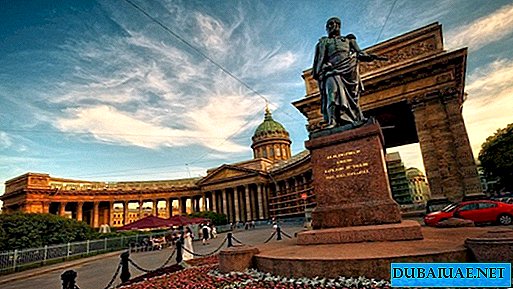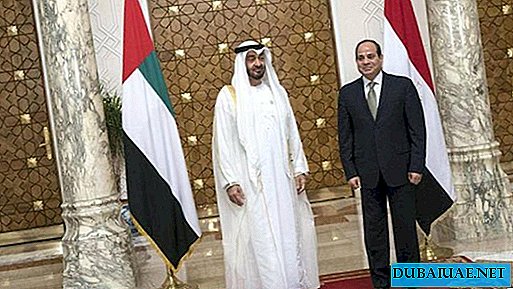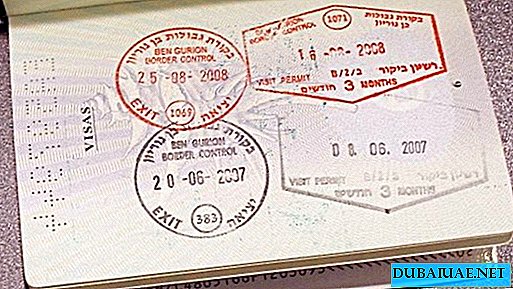In connection with the construction boom in the real estate market and the construction of gigantic projects in the emirate of Dubai, begun in 2002, a monstrous number of real estate companies and investors wishing to acquire real estate objects appeared in the country.
Complementing this were the rapid sale of residential and office space immediately after the announcement of the start of their reservation, and huge lines of buyers lining up at the doors of the offices of real estate developers from the very early morning in order to buy at least some premises, as well as enterprising citizens who made good money by selling their own places in such lines.
Moreover, real estate prices have been growing rapidly since the beginning of the construction boom, since the moment of submitting an application for reservation of a unit of housing, and the number of speculators, who profit almost from the double price difference, exceeded the number of real buyers who needed to purchase this housing. Thus, a large number of such speculators reserved units of real estate in many announced projects, while not only did they not need this property, but they did not even have the funds necessary to pay its full cost. The speculators simply paid the first installments in the hope that they would be able to afford to pay the full price for one piece of real estate after they resell the other and, thus, return the spent amounts with double benefit for themselves, as they invest in the emirate of Dubai, where it’s calm and safe where prosperity and stability reign under the control of His Highness Sheikh Mohammed bin Rashid Al Maktoum, vice president, prime minister of the UAE and ruler of Dubai (may Allah prolong his days and grant him health and prosperity).
It is worth noting that the emirate of Dubai flourished during the reign of Sheikh Mohammed and became one of the favorite cities for many people from around the world. Here, UAE citizens and thousands of people from other countries live in peace and harmony, which many other UN member countries have not dreamed of. Despite ethnic and cultural differences, all residents of Dubai enjoy safe living, no taxes and fees, a comfortable and prosperous environment, high standards and quality of life, fair laws and independent courts, professional police, high technology, simple and easy office work , traditional hospitality and the absence of discrimination against foreign citizens by local residents.
Thanks to its most outstanding projects, the emirate of Dubai has repeatedly appeared on the pages of the Guinness Book of Records. Such projects, along with many others, for example, were the highest skyscraper in the world - Burj Khalifa ("Khalifa Tower", named after the current President of the UAE, Sheikh Khalifa bin Zayed Al Nahyan), two man-made "palm" islands - The Palm Jumeirah and The Palm Deira, Burj Al Arab (Arab Tower), Atlantis Hotel and Dubai Metro.
However, speculators were constantly dependent on the incredible price increase that varied between the value of units of real estate, which was prescribed in the sales contracts, and the selling price of the same real estate at the time of the final commissioning of the building, therefore they booked a quantity of real estate many times higher than their real needs and financial opportunities. They took loans from banks to make a down payment for real estate for a period depending on its fast sale, during which it was possible to gain twice as much from the already paid one.
It was this that led to the rapid increase in prices for all major real estate properties that were repeatedly resold, and each new owner considered it his duty to raise the existing price for a new buyer. This continued until the real estate market was saturated. Sales stopped, and speculators had to think about how they would now pay the value of the real estate they reserved, since checks for the remaining cash payments had already been issued to developers, and the latter were rushing to make payments. Speculators began searching for loopholes in current legislation with the aim of terminating the concluded sale and purchase agreements and returning the money already paid (at best), or at least saving that part of the money that could still be secured. Most real estate companies have stopped the practice of not having residual prices for the sold units of real estate and, thus, have suspended payments to subcontractors and payments for construction materials and equipment.
Then it was time for His Highness Sheikh Mohammed bin Rashid Al Maktoum, the ruler of Dubai, to put things in order in the real estate sector and legislate the rights and obligations of the parties (both investors and developers). His Highness Sheikh Mohammed issued Law No. 13 of 2008, concerning the organization of preliminary rules for regulation in the real estate sector of the emirate of Dubai, some paragraphs and provisions of which were subsequently supplemented by Law No. 9 of 2009. After which, His Highness Sheikh Hamdan, the Crown Prince and Deputy Ruler of Dubai, as well as the Chairman of the Executive Council of Dubai, issued legislative acts dated 14/2/2010. The most important provisions of these amendments to the law were clarifications on what to do in case of already sold developers to investors in real estate units, in order to avoid damage, and oblige developers to register with the Dubai Land Department sales of all real estate under construction or only and drawings showing all the required characteristics, and all units have sold real estate under construction at the time of the law.
The law clearly defines the registration deadlines (60 days) and stipulates sanctions for insolvency in the absence of registration of a property, in order to support the guaranteed rights of the buyer, who must be sure that he is not acquiring the property that has not yet been built or the property from the company, Seen in fraud, or with any illegal broker and, accordingly, will not suffer unnecessary losses.
The law also stipulates that the determination of insolvency will be applied in any case if the property is not registered initially, but if the registration took place after the above period, then it will not be considered invalid; instead, the developer will have to pay a penalty for registration delays. (The Dubai Supreme Court, which oversees the implementation of this law, upheld the same definition in its decision No. 222009 of 24/4/2010).
The law also prohibits general developers or subcontractors from starting construction of a project and selling units of real estate located in the drawings until they receive a land plot and obtain a building license, and upon completion of the project, the law requires the developer to register his property immediately upon receipt of a certificate of completion. In this case, the buyer receives the right to register a unit of real estate in his name after providing information on the proper fulfillment of all his obligations under the contract of sale, as specified in the law on concluding a contract between the developer and the broker, helping him in sales. The law also indicates the obligations of all interested parties that cannot be violated; additional clarifications are given on how to declare the termination of the contract in case of default and also explains what to do if the sold land does not match the one specified in the contract. The law stipulates the actions of the Land Department in relation to developers and brokers in case of violation of agreements and the transfer of contentious issues to the competent authorities.
The Dubai government has issued a set of fundamental rules regarding the regulation of the real estate sector, explaining the actions, rights and obligations of each of the parties from the moment of sale of the real estate under the project to the end of construction, commissioning and final registration of the property. All this again makes the real estate market stable and turns the Emirate of Dubai into an oasis, gladly inviting everyone and, at the same time, protecting the rights of any citizen of the country and a foreigner.










